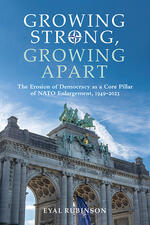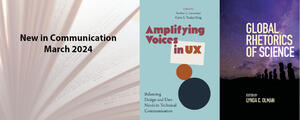
From Neutrality to Alliance
The Long-Awaited Fulfillment of Sweden’s NATO Ambitions
Guest post by Eyal Rubinson
After formal ratification by Hungary on March 5, 2024, Sweden has now formally become NATO’s 32nd member state, following an excruciating accession process that began in the aftermath of Russia’s full-scale invasion of Ukraine, in late February 2022. As I explain in my new book appearing in April 2024 with SUNY Press, Growing Strong, Growing Apart: The Erosion of Democracy as a Core Pillar of NATO Enlargement, 1949–2023, Stockholm’s NATO membership represents a historic pivot in the nation’s defense policy. In the past, Sweden has embraced a long-standing policy of military non-alignment, lasting over two centuries, with its last active engagement being the Napoleonic Wars. This stance was particularly emphasized during the Cold War era, where Sweden successfully navigated the geopolitical tensions between the East and West without formally aligning itself with either bloc, enjoying wide consensus among the Swedish public.
As I note, Russia’s invasion of Ukraine has drastically altered the security landscape of Europe, ultimately prompting Sweden (alongside Finland) to seek NATO membership as a strategic move to secure their protection amid escalating regional instability, responding to increasingly supportive public opinion on NATO membership. However, Sweden and Finland’s path to membership has been fraught with intentional delays, stemming from the requirement for a unanimous ratification process by all (existing) NATO member states. While Sweden was able to achieve a vast majority of ratifications by the end of 2022, Turkey and Hungary remained at odds with Stockholm over their bid for NATO membership, deferring ratification for over an additional year, until early 2024.
More specifically, Turkey’s opposition was primarily driven by what it perceived as Sweden’s tolerant stance towards groups Ankara considers terrorist organizations, most notably the Kurdistan Workers’ Party (PKK). Turkey accused Sweden of providing a safe haven for PKK members and supporters and allowing fundraising and recruitment activities within its borders. As part of their bilateral negotiations, Turkey reportedly demanded Sweden to undertake significant steps against PKK activity within Sweden, and simultaneously (successfully) campaigned to lift a long-standing U.S opposition to providing Ankara with advanced F-35 fighter jets.
Hungary’s ‘beef’ with Sweden had more to do with political and diplomatic grievances against Sweden’s conduct within the EU arena. Specifically, Hungarian officials expressed dissatisfaction with what they viewed as Sweden’s harshly critical and vocal stance on Hungary’s rule of law, eroding democratic practices, and human rights violations. Apart from demanding a fresh rhetoric on this subject, Hungary was reportedly offered to purchase advanced Swedish-made fighter jets and forced Sweden to curb its critical approach towards Victor Orbán—Hungary’s populist leader of the Fidesz party, and Prime Minister since 2010.
What are the immediate implications of Sweden’s integration into NATO? I expect a considerable strengthening of the alliance’s northern flank, enhancing its collective defense capabilities in the Nordic region, thereby sending a signal in the form of a unified position towards Russian aggression. In the medium term, Sweden and Finland’s integration is expected to play a key role in coping with the challenge of cybersecurity and emerging technologies (including artificial intelligence and autonomous weapons systems), as well as in other avenues such as climate change and security, space security and the major threat of hybrid warfare, information manipulation and interference in the Alliance’s democratic composition. In the long term, it also strengthens NATO’s posture in coping with the rise of China as a strategic competitor. Most importantly, however, the integration of Sweden and Finland into the Alliance bolsters the Alliance’s political cohesion and unity in an extremely challenging era, in which the prospects of a resurgence of a NATO-skeptic U.S President are more realistic than ever.
Eyal Rubinson is Lecturer at the Department of Middle Eastern Studies and Political Science, Ariel University, Israel, and Visiting Scholar at the Institut Barcelona d'Estudis Internacionals (IBEI), Spain.


